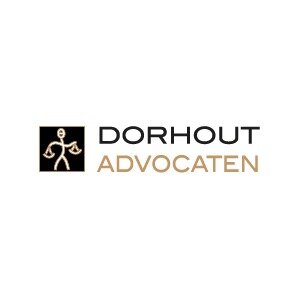Best Bankruptcy & Debt Lawyers in Groningen
Share your needs with us, get contacted by law firms.
Free. Takes 2 min.
List of the best lawyers in Groningen, Netherlands
About Bankruptcy & Debt Law in Groningen, Netherlands
The concept of bankruptcy in Groningen, Netherlands falls under Insolvency Law, which is a part of Dutch Civil Law. The key legislation is the Bankruptcy Act ("Faillissementswet") which provides for both bankruptcy (faillissement) and suspension of payment (surséance van betaling). When you're unable to pay your debts, you may declare bankruptcy or seek debt restructuring. If you're a creditor, you may apply for a debtor to be declared bankrupt by the court.
Why You May Need a Lawyer
Bankruptcy and debt cases can be complex and require a deep understanding of the Dutch legal system. If you are considering filing for bankruptcy, attempting to avoid it, or are a creditor involved in a bankruptcy case, a lawyer can help you navigate the legal intricacies. They can provide legal advice on the best course of action, help complete and file necessary documents, represent you in court, and help negotiate with creditors. Individuals dealing with consumer debt can also benefit from legal representation as Dutch laws provide several options for debt restructuring.
Local Laws Overview
The Bankruptcy Act in the Netherlands mandates that a debtor can either voluntarily declare bankruptcy or be involuntarily declared insolvent by a creditor. The Act also provides for debt restructuring, known as the Debt Restructuring Natural Persons Act or WSNP, for individuals who have become excessively indebted. This law allows citizens to free themselves from old debts if after a period of three to five years, if they have done their best to pay as much as they can. A trustee is appointed by the court to sell the debtor's assets, with the proceeds distributed among the creditors.
Frequently Asked Questions
Can I file for bankruptcy myself?
Yes, you can file for bankruptcy yourself; however, it is highly recommended to seek legal advice due to the complexity of Dutch bankruptcy law.
What is the difference between bankruptcy and debt restructuring?
Bankruptcy is a legal procedure for liquidating a debtor's assets to pay off creditors, while debt restructuring aims to provide the debtor with a fresh start by balancing the interests of the debtor and the creditors.
What happens to my property if I declare bankruptcy?
When bankruptcy is declared, all of your property will be included in the bankruptcy estate, managed by a court-appointed trustee. Any income you earn after the date of bankruptcy declaration is not included.
Does bankruptcy discharge all the debts?
No, not all debts are dischargeable in bankruptcy, such as alimony, child support, certain tax debts, and student loans.
Will bankruptcy affect my credit score?
Yes, filing for bankruptcy can have a severe impact on your credit score and stay on your credit report for several years.
Additional Resources
The Legal Aid Board (Het Juridisch Loket) offers free legal advice for those in need. The National Institute for Budget Information (Nibud) can also provide guidance and resources about managing your money and debts.
Next Steps
If you believe you may need legal help regarding bankruptcy and debt matters, consider reaching out to a local law firm specializing in insolvency and bankruptcy cases. Always make sure to prepare any relevant documents and questions before your consultation to make the most out of your session.
Lawzana helps you find the best lawyers and law firms in Groningen through a curated and pre-screened list of qualified legal professionals. Our platform offers rankings and detailed profiles of attorneys and law firms, allowing you to compare based on practice areas, including Bankruptcy & Debt, experience, and client feedback.
Each profile includes a description of the firm's areas of practice, client reviews, team members and partners, year of establishment, spoken languages, office locations, contact information, social media presence, and any published articles or resources. Most firms on our platform speak English and are experienced in both local and international legal matters.
Get a quote from top-rated law firms in Groningen, Netherlands — quickly, securely, and without unnecessary hassle.
Disclaimer:
The information provided on this page is for general informational purposes only and does not constitute legal advice. While we strive to ensure the accuracy and relevance of the content, legal information may change over time, and interpretations of the law can vary. You should always consult with a qualified legal professional for advice specific to your situation.
We disclaim all liability for actions taken or not taken based on the content of this page. If you believe any information is incorrect or outdated, please contact us, and we will review and update it where appropriate.
Browse bankruptcy & debt law firms by service in Groningen, Netherlands
Groningen, Netherlands Attorneys in related practice areas.










